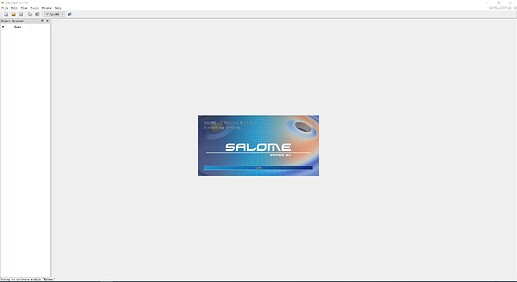I’m interested in building a module that loads GUI from other libraries like OPENTURNS_SALOME.
I wrote a demo, but it can’t be run.
// MyDemo.hxx
#ifndef __MYDEMOGUI_HXX__
#define __MYDEMOGUI_HXX__
#include "LightApp_Module.h"
#include <QObject>
class MyDemoGui : public LightApp_Module
{
Q_OBJECT
public:
MyDemoGui(const QString &module_name);
void initialize(CAM_Application *app) override;
void windows(QMap<int, int> &aMap) const override;
bool activateModule(SUIT_Study *study) override;
bool deactivateModule(SUIT_Study *study) override;
virtual ~MyDemoGui();
};
#endif
// MyDemo.cxx
#include "MyDemoGui.hxx"
#include "LightApp_Application.h"
#include "SUIT_Desktop.h"
#include "SUIT_Session.h"
#include "SUIT_ViewManager.h"
MyDemoGui::MyDemoGui(const QString &module_name) : LightApp_Module(module_name)
{
}
void MyDemoGui::initialize(CAM_Application *app)
{
LightApp_Module::initialize(app);
LightApp_Application *anApp = getApp();
SUIT_Desktop *dsk = anApp->desktop();
// get resources manager
QWidget *widget = new QWidget(dsk);
widget->setWindowTitle("MyDemo Window");
SUIT_ResourceMgr *resMgr = app->resourceMgr();
}
void MyDemoGui::windows(QMap<int, int> &aMap) const
{
#ifndef DISABLE_PYCONSOLE
aMap.insert(LightApp_Application::WT_PyConsole, Qt::BottomDockWidgetArea);
#endif
}
bool MyDemoGui::activateModule(SUIT_Study *study)
{
bool isDone(LightApp_Module::activateModule(study));
if (isDone)
{
LightApp_Application *app(dynamic_cast<LightApp_Application *>(SUIT_Session::session()->activeApplication()));
if (!app)
return false;
SUIT_ViewManager *aViewManager(app->getViewManager("MyDemo Window",
false)); // create if necessary
if (aViewManager)
aViewManager->setShown(false);
// showView(true);
setMenuShown(true);
setToolShown(true);
}
return isDone;
}
bool MyDemoGui::deactivateModule(SUIT_Study *study)
{
// hide own menus
setMenuShown(false);
// hide own toolbars
setToolShown(false);
// call parent implementation and return the activation status
return LightApp_Module::deactivateModule(study);
}
MyDemoGui::~MyDemoGui()
{
// do nothing
}
I compiled it, put it into W64/MyDemo dir and edit salome file
#[MYDEMO]
context.setVariable(r"MYDEMO_ROOT_DIR", r"D:\D\SALOME-9.11.0\W64\MyDemo", overwrite=True)
context.addToPath(r"%MYDEMO_ROOT_DIR%\bin\salome")
context.addToPath(r"%MYDEMO_ROOT_DIR%\lib\salome")
context.addToPythonPath(r"%MYDEMO_ROOT_DIR%\bin\salome")
context.addToPythonPath(r"%MYDEMO_ROOT_DIR%\lib\salome")
context.appendVariable(r"SALOME_MODULES", r"MYDEMO",separator=",")
context.appendVariable(r"SalomeAppConfig", r"D:\D\SALOME-9.11.0\W64\MyDemo\share\salome\resources\mydemo",separator=";")
then I use python salome -m MYDEMO to run it, it can be loaded but the software always stay here.
I don’t know how to display my custom view.
Any advice would be appreciated ![]()
![]()
